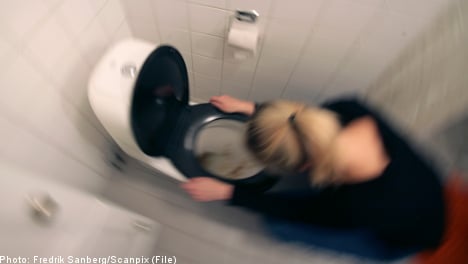”I was one of those who fell ill. I make no claims for myself, but I know others who had to be off work due to the illness,” said Lars Enoksson, business administrator for the municipality to local paper Dala-Demokraten.
According to the paper, at least 10 disgruntled customers have since reported the 27-year-old female café owner in hopes of getting compensation for the meals they had at her shop.
However, prior to the visit by the staff from the local authority, the café had been visited by the inspectors from the environmental health department, who carried out a check of the food served at the establishment.
The inspector found several serious flaws to the general cleanliness and food hygiene.
According to the report, the inspector was worried that there may be a serious risk of cross contamination between food groups.
Due to the risks, the café owner received a warning and was banned from handling food on the premises until she had carried out the changes demanded by the inspector.
Despite the order, the woman chose to continue running the café for another three days without having carried out any of the changes that the environmental health department had flagged.
According to the prosecutor, this makes the woman guilty of crimes against Swedish food laws as well.
The prosecutor has also argued that the crimes have been committed deliberately and that the owner should therefore be fined, the paper reported.
The 27-year-old woman has denied all allegations and since the incident has closed up shop.



 Please whitelist us to continue reading.
Please whitelist us to continue reading.
Member comments